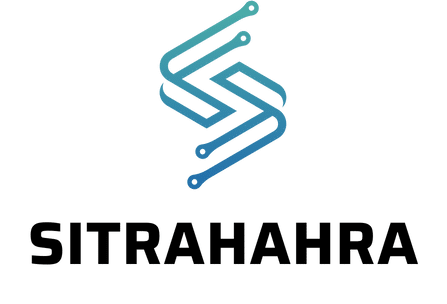As we continue to age, our bodies undergo numerous changes. However, it’s not only the physical elements of our health that can be affected. Aging can also impact our cognitive functions, such as memory, attention, and reasoning skills. But, would you believe it if we told you that there’s a new, modern way to help maintain and even improve these cognitive abilities? Yes, we’re talking about cognitive training apps. These innovative tools have quickly evolved into a viable method of promoting brain health. In this article, we’ll delve into the world of cognitive training and how it can assist aging adults in boosting their brain functions.
The Impact of Aging on Cognitive Function
To understand how cognitive training apps can be effective, it’s essential first to comprehend the effects of aging on the brain. Aging is a natural process, and it can bring about several changes in cognitive function.
Topic to read : How Does the Installation of Blue Light Filtering Streetlights Impact Urban Sleep Quality?
Research studies published on PubMed indicate that cognitive abilities such as memory, speed of thought, problem-solving skills, and spatial visualization often decline with age. These changes can sometimes lead to conditions like dementia, especially in older adults.
For many years, the general consensus was that once these cognitive abilities start to slip, there’s little that can be done to reverse the decline. However, more recent studies suggest that the brain is more malleable than previously thought. This concept, known as neuroplasticity, indicates that the brain can change and adapt, even in later life. Cognitive training can leverage this adaptability to help improve brain function in aging adults.
Also read : What Are the Optimal Strategies for Hydration in High-Endurance Athletes?
What is Cognitive Training?
At its core, cognitive training involves exercises designed to improve specific cognitive abilities. These exercises can range from memory tasks such as recalling names or events, problem-solving exercises, or tasks that require quick thinking. The primary aim is to enhance overall cognitive function and maintain brain health.
In recent years, cognitive training has taken a significant leap forward with the development of cognitive training apps. These apps, often available for free or at a minimal cost, provide a range of games and exercises designed to boost brain function. They offer a convenient and engaging way to undergo cognitive training, allowing you to enhance your cognitive health from the comfort of your own home.
How Cognitive Training Apps Work
Cognitive training apps leverage the power of technology to offer a variety of brain training games designed to target different cognitive abilities. These games often involve tasks that require concentration, memory recall, quick decision-making, or problem-solving.
These apps utilize a technique known as spaced repetition. This method involves repeating exercises at increasing intervals over time, which has been proven to help strengthen memory. By playing these games regularly, you can help improve your cognitive speed, memory, attention, and other vital brain functions.
Moreover, many of these apps use adaptive algorithms that adjust the difficulty of games based on your performance. This feature ensures that the brain is always challenged, thereby promoting cognitive growth and improvement.
The Efficacy of Cognitive Training Apps
There is a growing body of evidence supporting the efficacy of cognitive training apps. Many studies, including several published on PubMed, show that regular use of these apps can result in measurable improvements in various cognitive abilities.
For instance, a study from the Center for Memory and Brain Health (CMG) found that older adults who regularly used a cognitive training app showed improvement in both memory and attention compared to a control group. This research indicates that cognitive training apps can indeed help boost brain function in aging adults.
Choosing the Right Cognitive Training App
While it’s apparent that cognitive training apps can be beneficial, it’s important to remember that not all apps are created equal. When choosing a cognitive training app, look for one that has a solid scientific basis. The app should be designed in collaboration with neuroscientists or cognitive psychologists and have research backing its efficacy.
In addition, consider your specific needs and preferences. Some apps may focus more on memory, while others might emphasize speed or problem-solving abilities. Most importantly, choose an app that you find engaging. The more you enjoy using the app, the more likely you are to use it regularly and reap the cognitive benefits.
In conclusion, while aging is a natural part of life, cognitive decline doesn’t have to be. Through the use of cognitive training apps, older adults can take a proactive approach to maintain and improve their brain health. It’s never too late to start training your brain. After all, an active brain is a healthy brain. So, why not give cognitive training a try? It could be just the boost your brain needs.
The Relationship Between Cognitive Training Apps and Alzheimer’s Disease
While cognitive training apps are not a cure-all solution, they can play a significant role in managing and possibly delaying the onset of Alzheimer’s disease and other types of dementia. Alzheimer’s disease is a kind of cognitive impairment that affects memory, thinking skills, and the ability to perform simple tasks. It is a leading cause of disability and poor health among older adults worldwide.
Studies have shown that regular cognitive training can significantly delay the onset of Alzheimer’s disease symptoms. The brain health benefits of cognitive training apps can be attributed primarily to their ability to stimulate neuroplasticity and improve cognitive functions such as working memory, processing speed, and problem-solving skills.
These apps are particularly beneficial for older adults at risk for Alzheimer’s disease. By using cognitive training apps, these individuals can engage in regular brain exercises that help delay cognitive decline and improve the quality of life.
For example, a study published on PubMed and available as a free article indicated that older adults who engaged in regular cognitive training sessions on an app showed a slower rate of cognitive decline compared to those who did not. Additionally, the study found that the individuals who used the app had a lower rate of progression to Alzheimer’s disease.
Given the potential of cognitive training apps in Alzheimer’s disease management, it’s critical that older adults incorporate these tools into their routine. But remember, these apps should not replace traditional Alzheimer’s disease management strategies like medication and physical activity but should be used as a supplementary tool to boost cognitive health.
Conclusion: Investing in Cognitive Health
As we age, maintaining our cognitive health becomes increasingly important. With the continuing rise in dementia and Alzheimer’s disease, the need for effective and accessible cognitive health tools has never been greater. Cognitive training apps offer a promising solution. They provide a range of exercises designed to stimulate the brain, improve cognitive functions, and delay cognitive decline.
While these apps can’t completely halt the aging process or cure Alzheimer’s disease, they can play a crucial role in maintaining and even improving cognitive health in older adults. Regular use can lead to improvements in working memory, processing speed, and problem-solving abilities.
In the face of an aging population and the increasing prevalence of cognitive impairment, there is a pressing need for strategies to promote brain health. Cognitive training apps may be one piece of the puzzle. They offer an engaging, accessible, and effective way for older adults to invest in their cognitive health.
As we have discussed throughout this article, the key to reaping the benefits of cognitive training apps is regular use. So, set some time aside each day to engage with your chosen app, and remember, the more you use it, the more you’ll benefit.
In the words of Nelson Mandela, "A good head and a good heart are always a formidable combination." So, why not equip your ‘good head’ with a cognitive training app and take a proactive step towards better brain health? As we’ve seen, an active brain is a healthy brain. Commit to your cognitive health today – it’s never too late to start training your brain.






